Phage Display
About
Phage Display technology has revolutionized biomedical research for generating ligands and target discovery. This is having a major impact on drug development and many other areas of biomedical and material science. Phage display is a leading contender in the field of nanoscience with applications ranging from new cancer drugs to bioterroism. The science of phage display is rapidly changing and new technologies emerge that have enormous impact on the speed of using this technology. Subscribers to Phage Display will gain an immediate overview of the more than 5,600 phage display articles and will stay constantly up to date.
Sign up
The Tree of Medicine® is the absolute definitive source on phage display, with over 10 years of extensive development invested. Signing up is absolutely free, thanks to the help of our generous sponsors. You'll gain access to a collection of every phage display article meticulously organized by our subject experts.
In addition to full access to the app, we provide a free monthly email to update you on recent articles published in phage display that have been reviewed by our editors. We find the articles so that you don't have to!
Editors
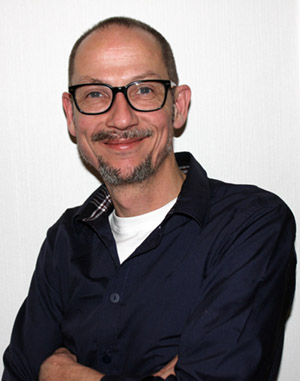
Peter Kristensen, Ph.D.
Associate Professor (MSK) at Department of EngineeringUniversity of Aarhus
Aarhus, Denmark
The research of Peter Kristensen is centered on the technical development and application of recombinant antibodies and methods of isolating such antibodies from large libraries. The interest to make technological development based on recombinant antibodies were initiated while Peter Kristensen performed his post doc at the MRC-LMB in Cambridge in the group of Sir Greg Winter.
Peter has developed important methods of selecting antibodies against a single rare cell present in a heterogeneous population using phage display. He has extensive experience teaching at the graduate and postgraduate level. He has multiple international collaborations including with Professor Tilman Grune, the German Institute of Human Nutrition (DIfE) Potsdam-Rehbrücke; Professor Daniel Christ, Garvan Institute, Australia, Professor Hiroshi Ueda, Tokyo Institute of Technology, Japan; Associate Professor Matthew Holt, VIB Center for the Biology of Disease, Beligum; Assistant Professor Andy Shih, Medical University of South Carolina, USA; Professor Jorge Arevalo, Universidad Peruana Cayetano Heredia, Peru; Professor José Antonio Pascual Esteban, Institut Municipal d' Investigació Mèdica de Barcelona, Spain.
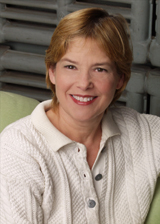
Jamie Scott, M.D., Ph.D.
ProfessorDepartment of Molecular Biology & Biochemistry
and Faculty of Health Sciences
Simon Fraser University
Burnaby, BC
In 1990, Jamie Scott with George Smith published a seminal article in Science. This documented Jamie’s original contribution to the field of phage display. She is interested in understanding the molecular basis for antigen recognition by antibodies using peptide as probes of these interactions.
She is a molecular immunologist and physician, and has a strong interest in understanding how the peptide recognition profile of an antibody response may be applied to the development of vaccines and autoimmune diagnostics. Her team searches for peptides will bind to human monoclonal antibodies that kill HIV-1. She hopes to create a vaccine that will elicit these same antibodies in uninfected people, and thus protect them from AIDS.

David Krag, M.D.
SD Ireland Professor of Surgical OncologyUniversity of Vermont
College of Medicine
Burlington, VT 05405
The lab of David Krag has focused on phage display panning methods that involve tumor specimens from cancer patients. He has held multiple R01 grants for phage display. Tumor specimens in a variety of formats have been presented to phage libraries. These formats include purified molecules, disaggregated cells and tissues. Patents have been obtained for peptide ligands to ErbB2 and Grb7, both of which play a critical role in breast cancer. Laser capture methods were developed for selection of ligands to specific cellular components of a solid cancer. David Krag is the first to perform serial phage display panning in human cancer patients.
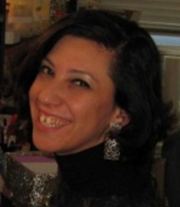
Deniz Gur, M.D., M.S.
Department of SurgeryUniversity of Vermont
College of Medicine
Burlington, VT 05405
Deniz Gur is a research pathologists with special interest in phage display applications to cancer diagnosis and therapy. She published the world’s first phage displayed antibody that selectively targets breast cancer stem cells.
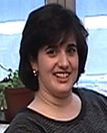
Stephanie Pero, Ph.D.
Research Assistant Professor of SurgeryUniversity of Vermont
College of Medicine
Burlington, VT 05405
The goals of Dr. Pero's research have been to develop phage-displayed random peptide libraries (RPLs) and to generate short peptide ligands to ErbB2 and associated molecules. She and her colleagues have successfully met these goals and have obtained short peptide ligands to ErbB2. Blocking the function of ErbB2 with her peptide leads to inhibition of proliferation of cancer cells.
Several recent studies investigating ErbB2 expression have shown Grb7 as a prominent co-expressor. In addition to bioactive ErbB2-binding peptides, Stephanie has developed bioactive Grb7-binding ligands. She has shown the ErbB2-binding ligand, known as EC-1, to inhibit the phosphorylation of ErbB2 and inhibit the proliferation of overexpressing breast cancer cells. The Grb7-binding ligand, known as G718NATE, inhibits Grb7’s ability to bind to the family of ErbB receptor tyrosine kinases and specifically ErbB3. Importantly, they have shown that the cell permeable G7-18NATE-P peptide is able to successfully translocate across the cell membrane and significantly inhibit attenuated cell migration and peritoneal metastasis in a pancreatic cancer mouse model.
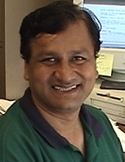
Girja Shukla, Ph.D.
Research Associate Professor of SurgeryUniversity of Vermont
College of Medicine
Burlington, VT 05405
Girja Shukla is focused on the use of phage displayed libraries for developing new methods to treat cancer.
He has developed methods of biopanning freshly harvested cancer cells using very small specimens. He has
developed successful methods that use less than the number of cells present in a fine needle aspirate.
Dr. Shukla has also generated a series of highly unique phage libraries that display beta lactamase.
Here the variable regions are designed in the structure to mimic antibody binding sites without altering
the molecular activity of the enzyme.
Selected tumor-specific ligands from beta-lactamase loop libraries have potential for their use as
tumor-targeting agents in prodrug therapy, when used in combination with beta-lactum prodrugs of potent
cytotoxic agents.